|
By Ariel In which Ariel and Brianna discuss The Five Love Languages of Children by Gary Chapman and Ross Campbell - a book which outlines how to apply the five love languages philosophy to our relationships with children. This post contains affiliate links. By using them you help keep Busy Nest News up and running. Thank you for your continued support! The Five Love Languages of Children by Gary Chapman & Ross Campbell Summary: The 5 Love Languages of Children As a parent, caregiver or teacher we communicate love to our children the best ways we know how. But are they receiving it? The Five Love Languages of Children: The Secret to Loving Children Effectively, by Gary Chapman and Ross Campbell, teaches us how to apply Chapman’s love language philosophy to our relationships with the school-aged children in our lives. In this book Drs. Chapman and Campbell help us to understand how to convey unconditional love, how to use all five of the love languages to communicate love and model best practices, and how to effectively discipline in harmony with the philosophy. Review: The 5 Love Languages of Children 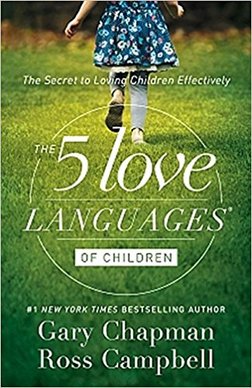 As a long-time fan of Dr. Chapman’s original book, The Five Love Languages: The Secret to Love That Lasts, I was excited to explore their take on communicating love within the parent/caregiver - child relationship. If you are familiar with the original, The Five Love Languages of Children follows a similar format. The first half of the books goes into each love language in depth. In fact, I felt that this book did a far better job explaining each of the five language in detail. This makes sense since the main thesis of the book is that, as a parent or caregiver it is our responsibility to model each love language effectively. Even if we know what our child’s primary love language is! By modeling each and every love language in multiple ways, we are setting our children up to better communicate love in future relationships. The book also did a great job of providing actionable suggestions at the close of each chapter. Most of what I highlighted can be found in these sections. Score! My only criticism of the book was that it assumed a fair knowledge of the basic philosophy. So if you have not read the original, you may find this book somewhat confusing. For example, the book talks about the love tank but it never explains what it is or at least not with the same depth that the original goes into. At best, by doing this, they alienated readers without this information base. At worst, they may have undermined their execution of the philosophy. I highly recommend reading the original; it was a game-changer for me. But if you don’t have time and just want to learn the basics so you can start reading The Five Love Languages of Children, you can start with our overview of the five love languages. I must put a disclaimer on the book though, Dr Chapman and Dr Campbell are both devout Christians who occasionally use scripture to illustrate their points. This will be a selling point for some, but a turn-off for others. For those of you who will be off-put by their faith, I urge you to read the book anyway. No matter how you approach the love language philosophy it has merit. Overall I was pleased with The Five Love Languages of Children: The Secret to Loving Children Effectively. I will definitely be rereading this as Bean grows. Torn between four and five eggs, I ultimately settled on four. While I am convinced that for me the five love languages is an effective tool for communicating love within my relationships, I need some time to see how it impacts Bean. Discussion:The 5 Love Languages of Children Ariel: So having read the majority of the five love languages I can confidently say that The Five Love Languages of Children is my second favorite. Second only to the original. Second only because I have seen the impact the original has had on my marriage, and I have yet to experience how speaking the love languages will play out with the Bean. But I am looking forward to it. Having read both The Five Love Languages of Children and The Five Love Languages of Teens, Brianna, how do they compare? Brianna: I was pleasantly surprised by the differences between the two editions. If you read The Five Love Languages of Children while your kids are young, you should be equipped with a strong relationship and lots of great tools by the time they’re teens. You’ll need to make minor changes to how you speak their love language, because that will change as your child grows, even though the language itself will remain the same for them. The Five Love Languages of Teens, however, reads a bit more like a typical parenting book. The kind that a desperate parent would put in a pile of other books about how to not kill your teenager or drive them to drop out of school and take up selling hard drugs on Craigslist (or whatever we think the worst case scenario is). The format is loosely the same as the other editions, but there is definitely more detail in this book about salvaging a relationship that is suffering deeply in the teen years. Ariel: So, at what point should we pick up The Five Languages of Teens? Even though it will be awhile before I have teenagers, do you recommend I read it now? Or if I read it now, will I only give myself anxiety as I steel myself for the onslaught of the teen years? Brianna: If you’ve only just learned about the Five Love Languages and want to love your angsty/angry/confused/resentful teen better, I would recommend going right in for the Teen edition. I especially loved that this book, like the one for parents of younger children, also pays extra attention to special cases, such as single parent families, blended families, and warning signs that your other attempts at discipline were veering into abuse. If you’re already living the love languages with your tween, but sense major changes brewing in them, reading the Teen edition might comfort you with additional tools for handling your maturing child. Ariel: One of the things that I appreciate about the Five Love Languages is the attention Dr Chapman pays to individuals in more challenging situations. For example, in the children's edition, there is a section dedicated to single parenting and co-parenting. Sometimes I find myself wishing he would flesh out his suggestions more, but I appreciate that he addressed the situation in the first place. For example, Dr Chapman’s military edition. I love that he thought to write a version dedicated solely to military families. I was disappointed that it was not MORE in depth. Good effort. Could be a better execution. What was your reaction to their suggestions for learning your child’s love language? Do you think you will be playing the love languages mystery game? I am personally finding it challenging to not predict Bean’s love language. I know! I know she isn’t old enough yet; she is barely two years old. Brianna: I know, it is hard not to try to pigeon hole them! But I also think it’s important to let Monkey show me who she is, rather than have her try to form herself into who she thinks I want her to be (if that makes any sense). No love language is wrong or bad, so this is one of those things about raising a kid that I will have to allow to be a surprise. And that’s wonderful! I mean, what if we guess wrong? We risk loving them in a language that is only secondary to them, and inadvertently make them feel less loved. I know I don’t want that. Ariel: But Brianna, my need to have a world-class gymnast who loves using Acts of Service trumps Bean’s budding individuality. Obviously. No, I absolutely agree with you. What I worry about is my natural tendency to love with action. My love language is Acts of Service, so when I am tired or overwhelmed or I lose focus on my goal of loving her with all five languages, that is what I turn to. I love her and my husband by washing the dishes, folding the laundry and preparing mediocre (but healthy) dinners. Remembering to model each and every one each and every day has been my downfall so far. Can’t we just get rid of one? Five is so many love languages! That is why we created the love languages reminder sticker! A handy list to slap in your planner that keeps you on track for using all five languages every day. Sign-up for our newsletter to receive it! One last question! What did you think of the supplemental sections on discipline, learning and anger? Brianna: I appreciated that Drs. Chapman and Campbell took care not to paint these sensitive topics with too broad a brush. “Of course emotional maturity is not the only thing keeping kids from performing well in school, but it’s what we’re talking about in this book and what we’re equipped to help you with,” is the gist of their introductory message about learning. I had never seen the anger ladder before, but it’s one of those concepts that made so much sense as soon as they introduced it to me. The rest of the book will help you make your child feel loved in general, but these final chapters really felt like tools for some of the most (potentially) fraught parent-teen experiences. As you can tell The Five Love Languages of Children: The Secret to Loving Children Effectively by Gary Chapman and Ross Campbell got Brianna and I thinking. What do you think? Is the five love languages philosophy something you want to explore using in your relationships? Check out the Love Languages library! Let's Keep in Touch!
0 Comments
Leave a Reply. |
AuthorsAriel and Brianna are friends who met while working in a library. Now they collaborate to develop life-enhancing book club experiences. Archives
June 2023
Let's keep in touch!Categories
All
|
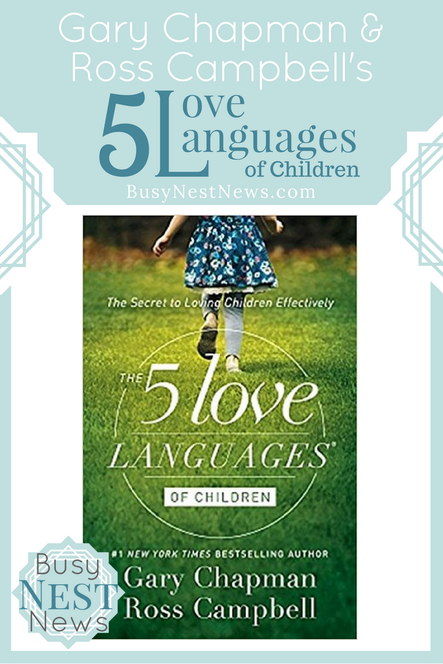
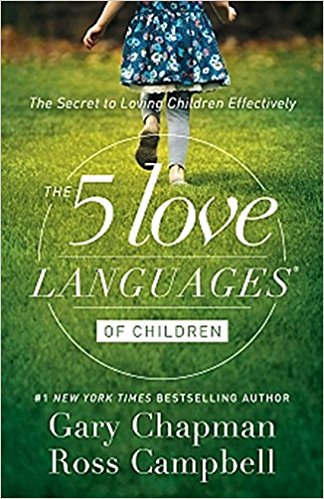
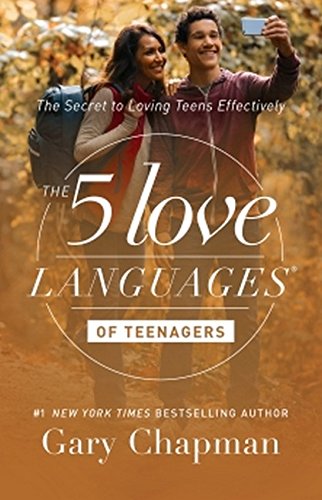
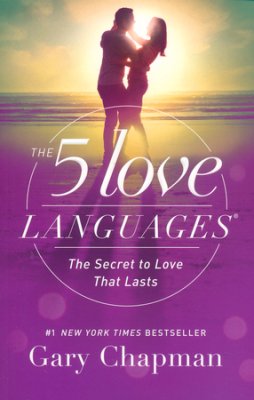
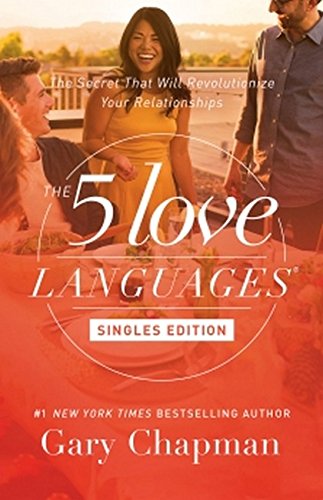
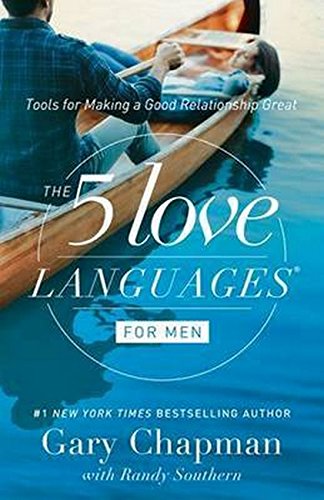
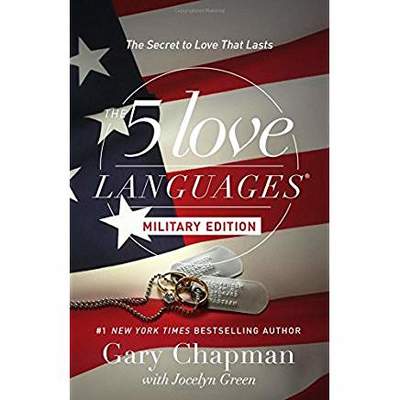








 RSS Feed
RSS Feed